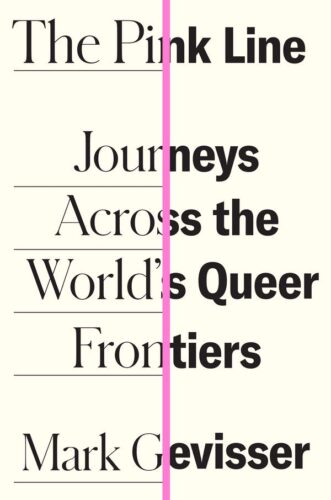This essay first appeared in our weekly Scripture reflection newsletter on November 16, 2024.
I’m not a political person. In other words, I follow U.S. politics (and, to a lesser extent, international politics) but I don’t have much interest in following whatever new bill is before Congress, what one politician said or didn’t say, how many votes a particular law needs to pass, and so on. And for a priest, that’s probably a good thing. My view is that bishops, priests and lay leaders should stay out of politics as far as possible. Of course, sometimes following the Gospel means that you must take stands that are, de facto, political, for example, when it comes to standing up for those on the margins or the dispossessed.
But it was hard not to have a stake in this year’s U.S. presidential election, which I did. Meaning: I voted! And after the results were announced, even if I wanted to remain “above the fray,” my inbox was quickly filled with messages from LGBTQ people, some of whom (not all of course) felt sad, angry and despairing.
One young man wrote, “I feel like it’s the end of the world.” I thought immediately of today’s Gospel reading, in which Jesus, after predicting the destruction of the Jerusalem Temple, answers the disciples’ question: When will this happen? Initially, Jesus speaks about that event (which ended up occurring in 70 A.D.) and moves to, essentially, the end of the world. This passage in Mark is often called the “Little Apocalypse,” to distinguish it from the “Great Apocalypse” in the Book of Revelation. (“Apocalypse” means the same as “revelation”—an “un-veiling,” in this case of the future.)
Underneath his question were deeper ones: Why is this happening? Why is there suffering?
Apocalyptic literature is often called “literature of the dispossessed,” which is another reason I thought about this passage after that young LGBTQ person asked about the end of the world. If I understood his question correctly, he was asking: Does this election signal danger or even violence for LGBTQ people? But underneath his question were deeper ones: Why is this happening? Why is there suffering?
The reason that apocalyptic literature is for the “dispossessed” is that it often comes in response to the suffering of peoples, and points them to a future in which God’s justice and mercy are made fully manifest. As the Sacra Pagina commentary explains, the short-term answer for their suffering is that it is the result of “fidelity to Jesus and of his message of God’s kingdom.” The long-term answer is that suffering is “part of God’s unfolding plan” that will ultimately end with the “vindication” of those who have been faithful throughout the tribulations.
Moreover, for those who wonder, “How can I endure my sufferings?,” we have an answer: Look to Jesus.
But another part of this passage is especially important today. When, exactly, will the “end of the world” come? Jesus says that even he doesn’t know. “Only the Father” does. It’s an answer to the theological question of “Does Jesus, as God, know everything?” At least here, the answer is no. So, for those looking for “signs” betokening the end of the world, be careful of “false prophets” who tell you it’s here.
Moreover, for those who wonder, “How can I endure my sufferings?,” we have an answer: Look to Jesus, who asks us to be resolute until the end, to care for the poor, marginalized and dispossessed among us, and, as the First Reading says, to be among “those who lead the many to justice.”




